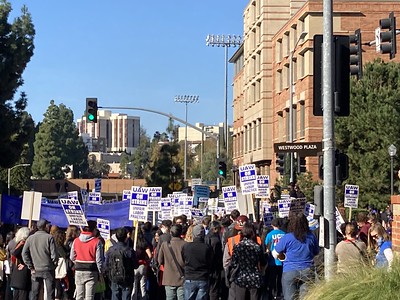The automotive industry is no stranger to labor strikes, and the United Auto Workers (UAW) have once again made headlines with their recent strikes affecting major players like General Motors (GM) and Stellantis. However, amidst the tensions, there is also news of progress in negotiations with Ford. In this article, we’ll delve into the latest developments surrounding the UAW strikes, their effects on GM and Stellantis, and the promising steps forward with Ford.
UAW Strikes: A Brief Overview
The United Auto Workers, a powerful labor union representing automotive workers, have been at the forefront of recent strikes, demanding better working conditions, fair wages, and job security. These strikes can have significant repercussions for automakers, causing production delays, supply chain disruptions, and financial losses.
Impacts on GM Facilities
General Motors, one of the largest automakers in the world, has felt the brunt of the recent UAW strikes. Several GM facilities have been hit by work stoppages, leading to disruptions in production schedules. As a result, dealerships have reported shortages of popular models, and the company’s profitability has taken a hit. Both parties continue to engage in negotiations to reach a mutually acceptable agreement.
Stellantis Facilities Also Affected
Stellantis, the multinational automotive corporation formed by the merger of Fiat Chrysler Automobiles and PSA Group, has not been spared from the UAW strikes either. Multiple facilities under the Stellantis umbrella have faced work stoppages, further contributing to industry-wide challenges. Like GM, Stellantis is working diligently to resolve the labor disputes and get production back on track.
Progress with Ford
Amidst the turmoil in the automotive industry, there is a glimmer of hope on the horizon. Negotiations between the UAW and Ford have shown promising signs of progress. While the details of the negotiations are not public at this time, the fact that both parties are moving closer to an agreement is a positive development. Ford has long been committed to maintaining good labor relations and avoiding disruptions in its production.
The Broader Implications
The UAW strikes send ripples throughout the automotive supply chain, affecting not only the automakers but also suppliers, dealerships, and consumers. Production delays can lead to higher vehicle prices and longer wait times for customers. Additionally, the strikes highlight the ongoing challenges of balancing the interests of labor and management in an industry that is rapidly evolving, with the shift toward electric and autonomous vehicles adding further complexity.
In conclusion, the UAW strikes have undoubtedly caused disruptions in the automotive industry, particularly for GM and Stellantis. However, the progress being made in negotiations with Ford offers a ray of hope. As the situation continues to develop, it’s essential for all stakeholders to work together to find solutions that benefit both workers and the industry as a whole. Stay tuned for further updates on this evolving story that has far-reaching implications for the future of the automotive sector.












